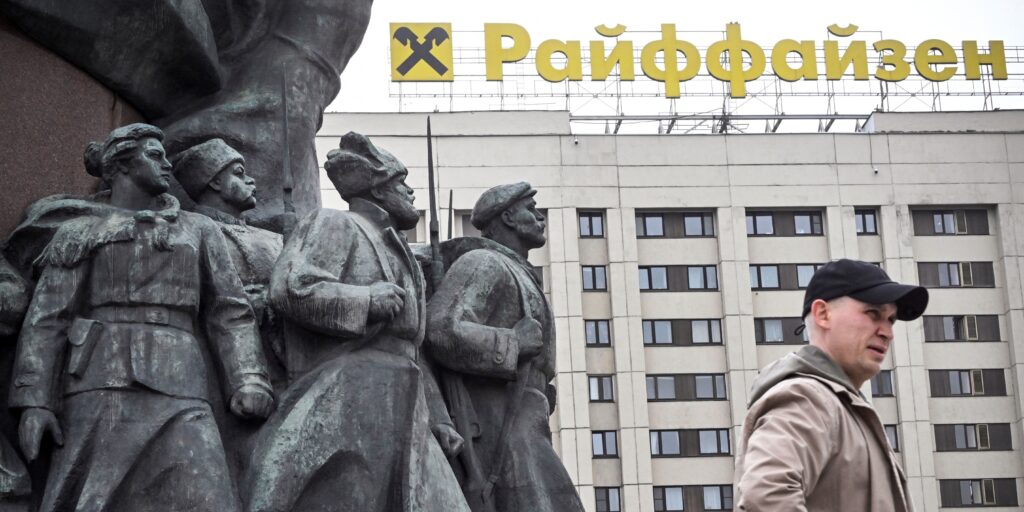- Raiffeisen Bank's Russian exit strategy has drawn scrutiny from Washington, Reuters reported.
- Shares in the bank fell as much as 16% Wednesday, as the planned deal could potentially lead to sanctions.
- The US has been stepping up pressure on foreign banks that facilitate transactions with Moscow.
An Austrian bank's plan to repatriate $1.6 billion in assets still stuck in Russia is facing US pushback, on concern that the deal would breach Western sanctions.
The Raiffeisen Bank International remains the biggest foreign-owned lender remaining in the country, as efforts to sell or spin off its Russian unit have struggled since Moscow's tightened exit requirements on foreign firms.
The dealer offered a new strategy in December, planning to purchase shares in an Austrian construction company Strabag, originally held by Russian businessman Oleg Deripaska.
The 28% stake would be facilitated through Raiffeisen's Russian subsidiary, after which the holdings would transfer to Vienna. The idea was touted as a way to unlock a portion of assets frozen in Russia, worth billions of euros.
But according to a Reuters report on Wednesday, the deal is facing scrutiny from Washington. That's as Deripaska is sanctioned for potential links to the Kremlin, making the transaction a possible breach of Western restrictions.
US officials have demanded details behind the individuals and entities related to the arrangement; if the deal is found to violate US sanctions and Raiffeisen was still to proceed with the plan, it could face its own penalties, sources told the outlet.
In a statement published by Raiffeisen on Wednesday, the bank pushed back against what it called the "Reuters rumours," noting that it has verified compliance and briefed US authorities.
"Furthermore, it was acknowledged that there is no US nexus to this transaction. It goes without saying that RBI will not proceed with any deal which would be in breach of sanctions, or expose RBI to the risk of sanctions," it said.
Following the Reuters report, shares in the company dropped as much as 16%.
The "adverse market reaction" forced the bank to postpone a 650 euro bond sale on the same day, the outlet said, citing a memo it had seen.
Aside from Raiffeisen, the US has been stepping up pressure on foreign banks that continue to facilitate transactions with Russia. Beyond Austria, that's included lenders in countries such as Saudi Arabia and Turkey.
